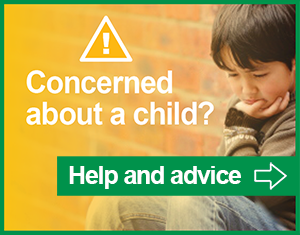Child Trafficking and Modern Slavery
Human Trafficking
Although many people think of human trafficking as only affecting adults, it affects children as well. Child trafficking is child abuse. Children are recruited, moved or transported and then exploited, forced to work or sold. They are often subject to multiple forms of exploitation. It is also not just about trafficking adults and children across national borders, human trafficking can take place anywhere.
Children are trafficked for;
child sexual exploitation
benefit fraud
forced marriage
domestic servitude such as cleaning, childcare, cooking
forced labour in factories or agriculture
criminal activity such as pickpocketing, begging, transporting drugs, working on cannabis farms, selling pirated DVDs and bag theft
Many children are trafficked into the UK from abroad, but children can also be trafficked from one part of the UK to another.
For the CSCP Trafficked Children policy please click here
Child Trafficking Advocacy Project
Barnardo's Independent Child Trafficking Advocacy Project![]() - this is a pilot for any child residing in the Greater Manchester area, irrespective of which Local Authority's care they are in (and also those children who are not in care), where there are suspicions that they are a victim of trafficking. Independent Child Trafficking Advocates
- this is a pilot for any child residing in the Greater Manchester area, irrespective of which Local Authority's care they are in (and also those children who are not in care), where there are suspicions that they are a victim of trafficking. Independent Child Trafficking Advocates![]() (pdf)
(pdf)
Modern Slavery
Modern slavery involves children who are recruited, moved or transported and then exploited and forced to work or sold. The Modern Slavery Act 2015 provides legal protection and support to victims and covers two offences - i) human trafficking and ii) forced labour and servitude. Statutory Guidance Document Modern Slavery Act 2015 (updated March 2020)![]()
Children do not have to prove that they have been coerced or persuaded in order to be a victim of modern slavery, i.e. a child's consent to being trafficked is irrelevant and it is not necessary to prove coercion or any other inducement for there to be an offence. This includes their engagement in criminal activity.
Public authorities have a duty under the Act to notify the Home Office when they come across potential victims of modern slavery and people trafficking.
Resources for Professionals
Resource Sheet : Child trafficking and modern slavery
Resources for parents/carers
The National Referral Mechanism (NRM) 'a guide for parents'![]() - the NRM is a framework for identifying victims of human trafficking and Modern Slavery
- the NRM is a framework for identifying victims of human trafficking and Modern Slavery
Useful links
Gov.UK - Collections/Modern Slavery![]()
Modern Slavery - Cumbria Police
Modern Slavery Awareness Booklet
The Home Office has published a guidance on modern slavery to help public sector workers who may not routinely come across modern slavery to recognise the signs and respond appropriately. The guide includes information on: legislation; the types of modern slavery; victims; and signs to look out for. Modern Slavery Guidance![]()
The Trauma-Informed Code of Conduct
The Helen Bamber Foundation has published 'The Trauma-Informed Code of Conduct'![]() for all Professionals working with survivors of Human Trafficking and Slavery
for all Professionals working with survivors of Human Trafficking and Slavery
